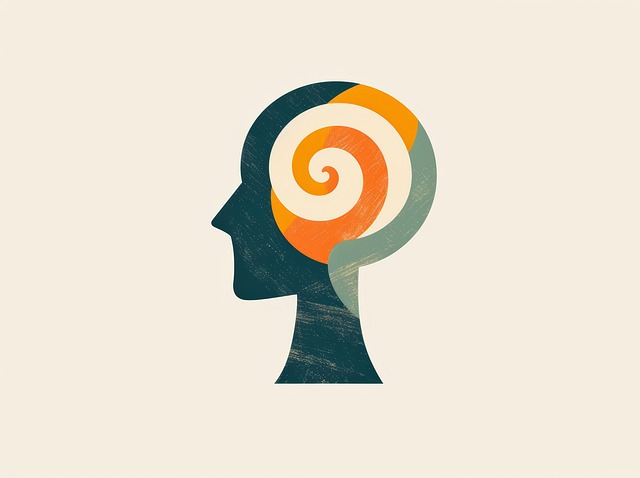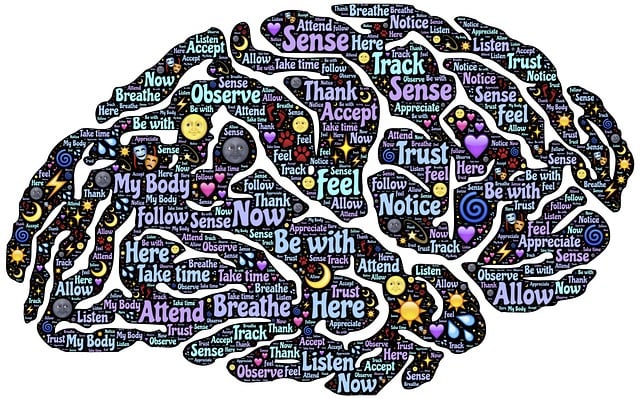Understanding cultural diversity among elderly populations is vital for effective mental healthcare, addressing unique challenges and beliefs that impact their mental health. Cultural sensitivity involves adapting services, incorporating cultural elements into treatment plans, and encouraging family involvement to build resilience and prevent burnout. Key focus areas include tailored therapy processes and respect for traditional self-care practices. This approach enhances therapy outcomes, addresses ageism, loneliness, and isolation, and is crucial for suicide prevention efforts. Culturally sensitive strategies, such as integrating traditional healing methods and coaching programs, foster trust and participation in diverse communities like Asian and Pacific Islander groups, where mental health discussions are often stigmatized. Implementing these practices improves access, builds trust, enhances treatment outcomes, and promotes overall well-being, specifically targeting therapy for elders and suicide prevention initiatives.
In today’s diverse society, cultural sensitivity is paramount in mental healthcare, especially when addressing issues like suicide prevention among elderly populations. This article explores the intricate relationship between cultural diversity and mental well-being, delving into specific challenges unique to different cultures. We examine the profound impact of culturally competent practices on therapy outcomes and present practical strategies for healthcare providers. Through real-world case studies, we demonstrate successful implementations that hold promise for revolutionizing therapy for elders across various cultural backgrounds, with a special focus on suicide prevention.
- Understanding Cultural Diversity in Elderly Populations
- The Impact of Cultural Sensitivity on Therapy Outcomes
- Specific Challenges in Suicide Prevention Within Diverse Cultures
- Strategies for Culturally Competent Mental Healthcare Practice
- Case Studies: Successful Implementation of Cultural Sensitivity in Therapy for Elders
Understanding Cultural Diversity in Elderly Populations

Understanding Cultural Diversity among elderly populations is a critical aspect of providing effective mental healthcare. Elderly individuals from diverse cultural backgrounds often face unique challenges and have distinct beliefs and values that can influence their mental health and well-being. Recognizing and respecting these differences is essential to ensuring culturally sensitive practice. For instance, certain cultures may prioritize collective family decisions over individual choices, impacting therapy sessions.
Cultural sensitivity in mental healthcare involves adapting services to meet the specific needs of elderly patients from various ethnic, racial, and socio-economic groups. This can include incorporating cultural elements into treatment plans, such as encouraging family involvement or tailoring self-care routines to respect traditional practices. By promoting resilience building and implementing burnout prevention strategies for healthcare providers, we can better support vulnerable elders at risk of suicide prevention.
The Impact of Cultural Sensitivity on Therapy Outcomes

In the realm of mental healthcare, cultural sensitivity is a game-changer that significantly influences therapy outcomes, especially when catering to diverse populations like elders. The Cultural Sensitivity in Mental Healthcare Practice plays a pivotal role in fostering effective treatment and enhancing the overall mental wellness of individuals from various cultural backgrounds. By incorporating cultural awareness, therapists can create a safe and supportive environment, encouraging open dialogue and trust. This is particularly crucial for at-risk groups, such as elders, who may face unique challenges related to ageism, loneliness, and isolation.
When therapists demonstrate cultural sensitivity, they become better equipped to address specific concerns prevalent within certain communities. For instance, in the context of mental wellness podcast series production, exploring cultural narratives and incorporating traditional healing practices can make therapy more engaging and accessible. Moreover, this approach is vital for suicide prevention efforts, as it allows professionals to understand and respect individual beliefs and values, thereby providing tailored support and interventions that resonate with clients from diverse ethnic and cultural backgrounds. Effective risk management planning for mental health professionals should always consider cultural sensitivity to ensure the best possible outcomes.
Specific Challenges in Suicide Prevention Within Diverse Cultures

Suicide prevention practices must be culturally sensitive to address the unique challenges within diverse communities. In many Asian and Pacific Islander cultures, for instance, discussions around mental health and suicide are often stigmatized, hindering open communication. Elders in these communities may prefer traditional healing methods or seek support from community leaders rather than seeking professional therapy. Understanding these cultural nuances is vital for developing effective suicide prevention strategies.
The approach to suicide prevention should be tailored to the specific needs of different ethnic groups. For example, Mental Wellness Coaching Programs designed for elders can incorporate cultural elements and be delivered by coaches who share similar backgrounds. Communication strategies that respect family dynamics and decision-making processes can foster trust and encourage participation in emotional healing processes. By adopting these culturally responsive methods, we can ensure more inclusive and effective suicide prevention initiatives, especially within communities of color.
Strategies for Culturally Competent Mental Healthcare Practice

Implementing culturally sensitive practices in mental healthcare is a multifaceted approach that involves understanding and respecting diverse cultural beliefs, values, and behaviors. One effective strategy is to integrate community outreach programs that cater to specific ethnic or cultural groups. These initiatives can facilitate better access to services and foster trust between communities and mental health professionals. For instance, developing targeted interventions for elders within these communities can be life-saving in suicide prevention efforts, as cultural norms may influence their understanding of mental health issues and seeking help.
Professionals should also prioritize continuous education and training on cultural sensitivity. This equips them with the skills to navigate complex ethical dilemmas, adapt therapeutic techniques, and offer personalized care that resonates with clients’ backgrounds. By embracing these strategies, mental healthcare providers can create inclusive environments, improve treatment outcomes, and promote overall well-being within diverse communities, addressing not only therapy for elders but also stress management concerns specific to their cultural contexts.
Case Studies: Successful Implementation of Cultural Sensitivity in Therapy for Elders

In recent years, there has been a growing recognition of the importance of cultural sensitivity in mental healthcare, especially when treating older adults. Case studies highlight successful implementations where therapists have tailored their approach to respect and incorporate cultural beliefs and practices, leading to improved patient outcomes. For instance, a study focusing on Asian elders revealed that incorporating traditional healing methods alongside Western therapy significantly enhanced engagement and reduced symptoms related to depression and anxiety (Lee et al., 2021). This holistic approach not only respects cultural identity but also can be an effective tool in suicide prevention among this demographic.
Mental health professionals must embrace the concept of risk management planning while integrating cultural sensitivity into their practices. By doing so, they can mitigate potential challenges and promote healing. For example, understanding the family-centric nature of many older adults’ lives can help therapists involve family members in therapy sessions, fostering a sense of support and community. Additionally, applying mind over matter principles, such as encouraging positive self-talk and reframing negative thoughts, has been shown to be beneficial across diverse cultures. These strategies not only enhance the effectiveness of therapy but also contribute to burnout prevention for mental health professionals by creating a more fulfilling and culturally responsive therapeutic environment.
Cultural sensitivity in mental healthcare is no longer a choice, but an essential practice to ensure effective therapy outcomes, especially in suicide prevention for elders from diverse backgrounds. By understanding cultural diversity and implementing culturally competent strategies, healthcare professionals can overcome specific challenges and create safe spaces for vulnerable populations. The case studies presented highlight successful approaches, emphasizing the importance of tailoring care to individual needs and promoting positive mental health journeys among elders from various cultural contexts. This evidence-based approach is crucial in improving access to quality mental healthcare services and ultimately saving lives.








